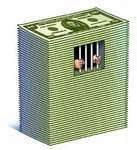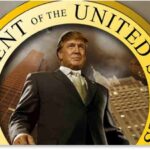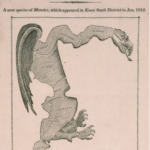By Douglas V. Gibbs
We’re told it’s in our best interest to use every digital protection available to secure our information. Change your passwords often. Use multi-factor authentication. Many of us comply. We see no reason not to. We want to keep our information safe so we use PIN numbers, fingerprint scanning, facial recognition and other biometric methods. In this age of technology it is a no-brainer to do all you can to prove we are who we say we are, and to ensure only we access our accounts.
Biometric verification is touted as a powerful tool for privacy and security, and it is. It relies on unique biological traits: fingerprints, irises, facial geometry. These things are nearly impossible to replicate.
The effectiveness of biometric verification is not the problem. The problem is regarding who runs the system. Can we trust the watchers who hold our data and biological markers?
Vietnam recently deactivated over 86 million bank accounts under a new biometric verification mandate. The State Bank of Vietnam claims this initiative will combat fraud and cybercrime. Funds weren’t seized, they say. Just locked away until account holders submit to biometric authentication.
Did they take a page out of the Borg playbook?
Resistance is futile.
To many, this reeks of what Christians call the mark of the beast. It echoes warnings from the Trump Administration about Central Bank Digital Currency. It mirrors Canada’s freezing of truckers’ accounts when they defied government orders. And when paired with the U.K.’s new digital ID system, one wonders: is this the blueprint for total surveillance and control?
Should Americans who value liberty and individual choice be concerned?
Absolutely. Vietnam’s actions and the broader global shift toward digital IDs and biometric verification raise serious questions about privacy, autonomy, and government overreach. Though marketed as tools for security and efficiency, these systems can easily become instruments of control. The examples from Vietnam, Canada, and the U.K. show how financial access can be weaponized to enforce compliance. And, don’t be fooled. They do indeed set a precedent that could reach American shores.
Let’s not forget Greece during its financial crisis. The government imposed capital controls, limiting how much citizens could withdraw from their own accounts. Allegedly to prevent a bank run, the move exposed just how fragile personal financial access can be. Tyranny wears many masks. When governments assume authority over individual finances, liberty is already under siege.
Combine Greece’s capital controls with Vietnam’s biometric mandates, Canada’s account freezes, and the U.K.’s digital ID rollout and a tyrannical pattern emerges. A pattern of vulnerability. A warning about the ease with which governments can restrict financial access. A call to defend individual financial freedom.
We must recognize and resist the erosion of liberty and the expanding reach of government surveillance. Digital IDs, biometric verification, and financial restrictions are not isolated innovations, and I get it when as individuals we decide to use these technologies, but also understand that they are also a part of a larger architecture of control. As technology becomes inseparable from daily life, the solutions to modern challenges increasingly rely on the very systems that threaten our autonomy. We’ve embraced these tools because they’re convenient. But convenience and safety is a poor trade for freedom if we allow governments to have unfettered access and use of these technologies.
Benjamin Franklin once said: “Those who would give up essential Liberty, to purchase a little temporary Safety, deserve neither Liberty nor Safety.”
We shudder as we watch global events unfold, sensing the alarms in our minds. Then we close our eyes, unsure what to do, and go about our day paying for everything with a phone or a plastic card.
Forget “Resistance is Futile.” We’ve raised the flag of serfdom ourselves. If we don’t reclaim control of the system, the system will finish its march to control us. A part of keeping some control is to keep physical currency in play. Use cash when you can. Keep cash king. Without it, the cell doors will slam shut, and we will be imprisoned inside a surveillance fortress that we may never escaped from save from a total loss of worldwide electricity.
If that happens, the dystopian vision behind the World Economic Forum’s “Welcome to 2030” essay will no longer be speculative. “You’ll own nothing and be happy” will slam into place as the cold and honest truth.
Angry? Good. What are you going to do about it? How are you going to influence the system? Attend political meetings? Run for office? Use cash most of the time?
The clock is ticking.



